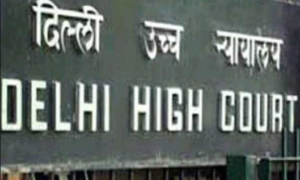PMLA prevails over Bankruptcy Act and Insolvency Code: Delhi HC
The Delhi High Court has ruled that Prevention of Money Laundering Act (PMLA) prevails over the Bankruptcy Act and insolvency code when it comes to attachment of properties obtained as ‘proceeds of crime’.
The Enforcement Directorate (ED) had challenged the orders of PMLA appellate tribunal on the pleas of various banks. PMLA Tribunal had held that third parties, banks in this case, which have legitimately created rights such as a charge, lien or other encumbrances, have a superior claim over such properties.
Observations made by Delhi High Court
- PMLA, Recovery of Debt and Bankruptcy Act (RDBA), Securitisation and Reconstruction of Financial Assets and Enforcement of Securities Interest (SARFAESI) Act and Insolvency and Bankruptcy Code (IBC) must co-exist and be enforced in harmony.
- The Delhi High Court has set aside the verdict of the PMLA tribunal and held that the objective of PMLA being distinct from the purpose of RDBA, SARFAESI Act and IBC.
- RDBA, SARFAESI Act and IBC doesn’t not prevail over PMLA
- The attachment order under the PMLA will not be illegal only because a secured creditor has a prior secured interest [charge] in the property, within the meaning of the expressions used in RDBA and SARFAESI Act.
- Also mere issuance of an order of attachment under the PMLA does not ipso facto render illegal a prior charge or encumbrance of a secured creditor, the claim of the latter for release [or restoration] from PMLA attachment being dependent on its bonafides.
Delhi High Court has stated that by the virtue of Section 71, PMLA has the overriding effect over other existing laws in the matter of dealing with “money-laundering” and “proceeds of crime”.
Month: Current Affairs - April, 2019


